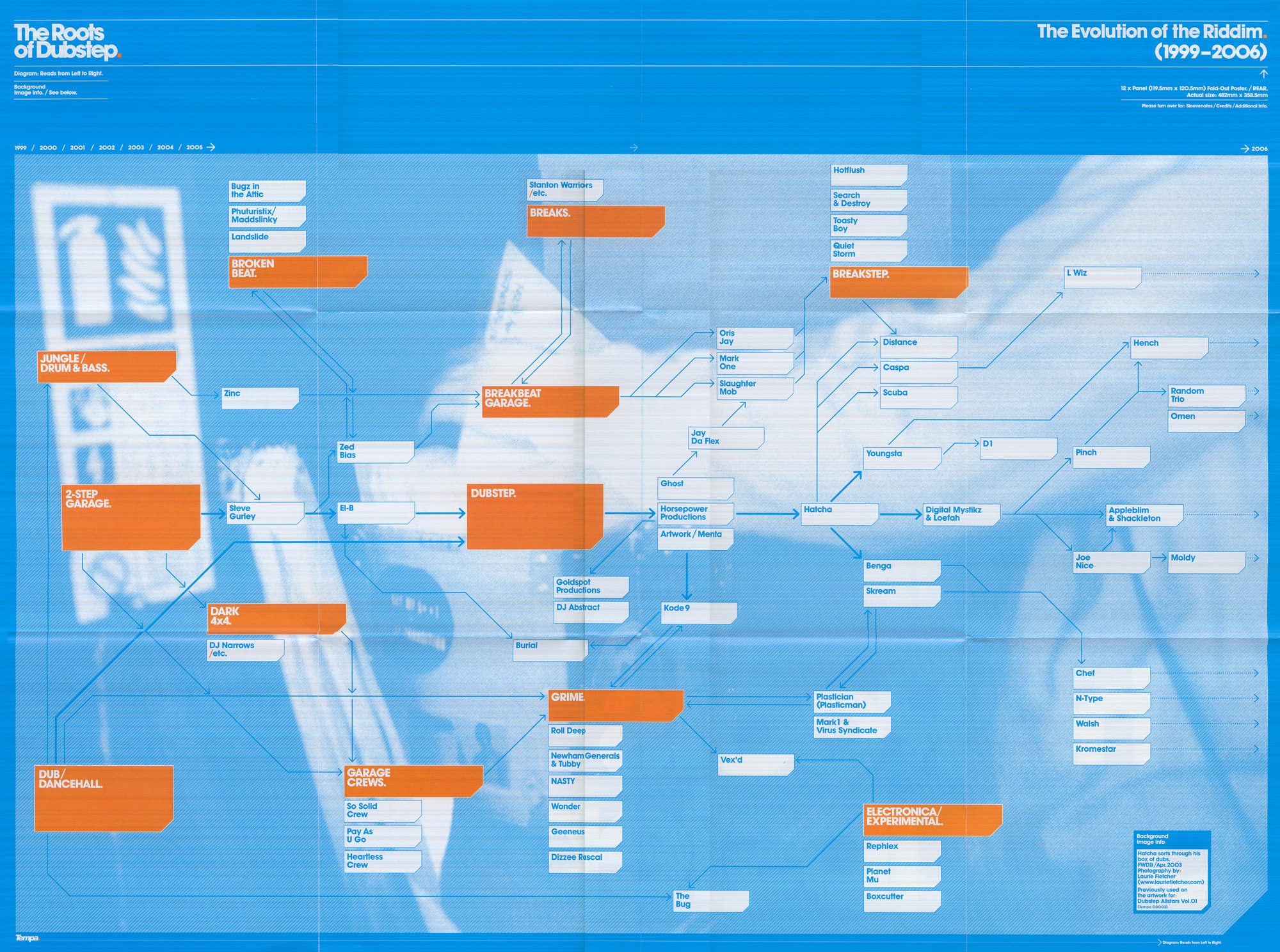- MP3 for Africa ! (cross-posted) — the snappy, statty hook:
If every American would buy 10 songs by African Artists, we would DOUBLE the amount of money the US is currently sending to Africa.
- the Boston Typewriter Orchestra (thx, mr.twink)
- Claire Chanel offers up another triple-slow screw: this time, Ciara’s “Promise” gets the souper-slrrrd tapedreck treatment —
[audio:http://clairechanel.com/tripleslow/ciara-promise_(triple_slow_screw).mp3] - Wubbity Wubbity, Mappity Wappity: A Dubstep Genealogy ! (thx, dday)

- splice is a (Chicago-“based”?) online garageband-style sequencer intended to foster creativecommons-covered collaboration — definitely some potential there.
- musicthing nominates the ten best beat making videos on youtube
(gotta love that KFW chimes in — debunking berklee-ish bias, natch) - (same time I ran across the above, I also discovered Domino [of Hiero game] offering some [non-youtube] peeks at his own beat making process)
- which reminds me, gscrugg’s videos of Rio’s Cabide live DJing MPC stylee are not to be missed:

[cross-commented at Mudd Up!]
hey wayne — Calabash seem decent, but their ‘fair trade’ spiel strikes me as slightly disingenuous. They promise “whenever we work directly with an independent artist they earn 50% from every sale.â€
2 problems with this –
1) is it NEVER obvious what albums are on there as a result of Calabash working w/ labels and which are sold directly by the artists. One of the ways in which this ambiguity is maintained is by not listing the record label, even in cases — the majority — where the music is on a label. i assume most other digital download services make the ‘label of origin’ obvious.
Also note that they display their artist agreements online but NOT their label agreements. Which strikes me as odd, considering that they must have more label agreements. Pretty much all African artists being sold to a Western audience have record-deals, labels, managers, etc., and it is those labels who legally need to sign contracts with Calabash and other digi-download services.
2) Even in those cases, rare, when the artist manages to work directly with Calabash — a 50/50 profit split after expenses are recouped is the STANDARD indie record label deal. so when Calabash starts talking about how this is what they offer artists direct deals as “fair trade†it seems… like marketing. Smart marketing.
And again, it obscures the fact that most of the available music has been recorded & produced by labels, who (hopefully) have the standard indie deal — meaning that *most* of the musicians/bands on Calabash get — if they are lucky — 25% of the profit.
of course, there IS positive social issues/global consciousness raising going on at Calabash, but its hardly what i think of as ‘fair trade’
my conception of Fair Trade, in the digital realm, has less to do with ahem ‘generous’ profit splits from socially-conscious *middlemen* and much more to do with SEEDS, spreading free & open-source software — ie zencart.com if we are talking about open ‘web-shop’ applications.
give a man a fish, he’ll receive tiny mercury deposits. teach a man to phish, he’ll eat for an online lifetime.
. . .
am i missing something in Calabash’s fine print? do they have a page where they list all the artist-direct deals?
thanks for the response, jace. (i’ll try a cross-post myself.) you raise very good points and your concerns dovetail with my own, which is why i too put “fair trade” in farequotes.
i think perhaps it would be best to hear someone from calabash respond.
i would say, though, that while i agree with you totally about cutting out the middlemen, i do find calabash’s approach to be a move in the right direction at least for this level of brokerage (which i don’t see going anywhere, at least immediately). moreover, their anti-DRM policy is refreshing and the sheer level of variety they offer (including lots of independents) is a good alternative to the iTunes of the worldwidewebs. but, yeah, i’d like to see more about the actual deals myself, and the licensing with labels (whose own deals are anything but transparent, and often alarming) is problematic.
it helps that i’ve met a couple of the middleguys that work at calabash–one is an ethnomusicologist–and they’re nice people who mean well. erich? simeon? any thoughts?